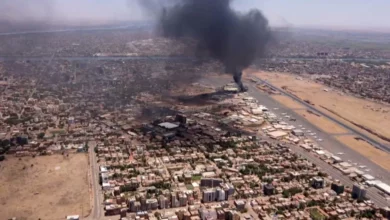
The Egyptian Minister of Irrigation and Water Resources Mohamed Abdel-Aty said Sunday that the Grand Ethiopian Renaissance Dam (GERD) has technical problems and incomplete studies, which will hamper its attempts at a second filling.
During a phone interview with “Hadith al-Qahira” (Cairo Talk) show on the “al-Qahira wal Nas” (Cairo and the People) channel, Abdel-Aty explained that the dam was planned to be operated back in 2014, and Ethiopia will not be able to fully complete the second filling of the dam.
Ethiopia withheld water from Sudan during the first filling which could have been postponed, he said, and when Ethiopia opened the lower gates of the dam it polluted Sudan’s water.
He said that in just one year, Ethiopia caused droughts, floods and pollution in Sudan’s water.
The intervention of the African Union in this crisis did not resolve anything, as the AU needed more time to understand technical matters and what happened from Ethiopia towards Sudan, he added.
Abdel-Aty stressed that Ethiopia lacks political will and fled from the Washington agreement, stressing that Ethiopia’s intransigence continues to bring negotiations back to the beginning.
The Arab League Council held an extraordinary meeting this month in Doha over the GERD, and the league called on the UN Security Council to meet on the matter.
The Arab foreign ministers affirmed that “the water security of Sudan and Egypt is an integral part of the Arab national security,” and expressed their rejection of “any action or measure that prejudices their rights in the Nile waters.”
The ministers called on Ethiopia to refrain from taking any unilateral measures that might harm the water interests of Egypt and Sudan, including refraining from filling the reservoir of the dam before reaching an agreement.
Egyptian Foreign Minister Sameh Shoukry sent a message last week to the President of the UN Security Council, where he explained developments in the situation and called on the council’s responsibility in accordance with the United Nations Charter to maintain international peace and security.
Egypt and Sudan say they want a legally binding agreement on filling and operating the GERD, while Ethiopia is trying to evade a binding agreement.
The construction of the dam, which began in 2011, is considered to be one of Egypt’s most serious water issues.
Egypt, which relies considerably on freshwater from the Nile, has voiced fears that the GERD would negatively impact the country’s water supply, and has insisted that measures be put in place to protect downstream countries in case of drought during the dam’s filling process.
Ethiopia, on the other hand, has stressed the importance of the project to bolster its economy, where more than half of the population currently lives without access to electricity.




